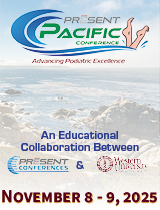|
|
|

|
Search
10/07/2025 Lawrence Rubin, DPM
RE: Has Podiatry Forgotten How to Save Limbs and Lives Using Lipstick?
Amid the advanced technologies in wound care, a
simple, low-tech method involving lipstick and
felt highlights a powerful approach to prevent
diabetic foot ulcers and amputations. This
technique showcases that effective preventative
care often relies on smart, simple, and systematic
practices.
An elegant solution for pressure relief:
In the diabetic foot, high pressure on the skin —
especially around the metatarsophalangeal joints
at the sole of the foot—can cause tissue damage
and eventually lead to an ulcer. The "lipstick"
method offers a straightforward way to identify
and relieve this pressure:
Mark the spot: A podiatrist or other wound care
clinician places a dab of lipstick on the pre-
ulcerative area.
Make an impression: The patient stands barefoot in
their everyday, well-fitting shoe, transferring
the lipstick mark onto the shoe's insole.
Create a buffer: The podiatrist uses this mark to
precisely place a specially cut, adhesive
offloading felt pad on the insole, creating a
small "crater" around the high-pressure area.
Re-distribute pressure: When the patient wears the
shoe, the felt pad effectively redistributes their
weight, relieving pressure on the vulnerable spot
and preventing skin breakdown.
This method, though seemingly simplistic, is a
powerful tool for patient education and proactive
intervention, reminding both patient and
practitioner that the most effective solutions
aren't always the most complex.
The LEAP Alliance: Championing all paths to
prevention
This low-tech, patient-centric approach to
prevention is precisely the kind of innovation
championed by the Lower Extremity Amputation
Prevention (LEAP) Alliance. This nonprofit
organization is dedicated to saving limbs and
lives by reducing the causes of non-traumatic
amputations, particularly in patients with
diabetes. The LEAP Alliance advances this mission
through several key initiatives:
Comprehensive screening: LEAP emphasizes the
importance of annual foot screenings to identify
individuals at risk due to loss of protective
sensation.
Community collaboration: The alliance brings
together podiatrists, other healthcare
professionals, community groups, and patients to
pool resources and promote preventive foot care.
Lawrence Rubin, DPM, Las Vegas, NV
There are no more messages in this thread.
|
| |

|
|







